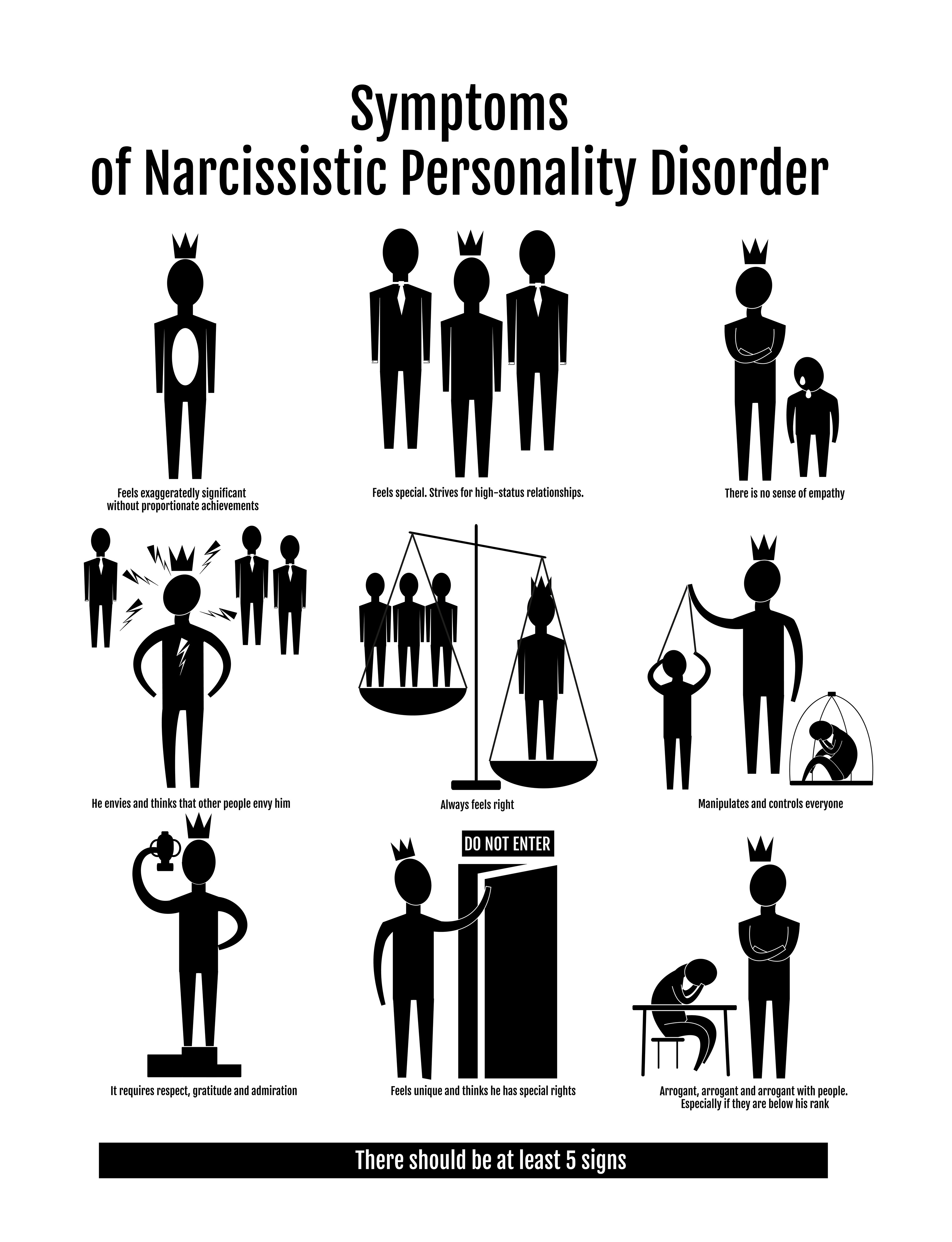As a BetterHelp affiliate, we receive compensation from BetterHelp if you purchase products or services through the links provided
It’s essential to understand the distinctions and similarities between three personality types: narcissists, sociopaths, and psychopaths. Each type exhibits its traits and behaviors, yet they often get conflated or misunderstood. This article aims to clarify these terms and offer insight into the differences, potential impacts, and interventions for individuals with these personality types.
Narcissists, sociopaths, and psychopaths can all exhibit manipulative and self-serving behaviors that lead them to thrive at the expense of others. However, their motivations and the degrees to which they exhibit these traits can vary significantly. By exploring their respective origins in psychology and defining the characteristics of each, we can better grasp how they affect interpersonal relationships and how to recognize and deal with these individuals in various contexts.
Key Takeaways
- The article explores the distinctions between narcissists, sociopaths, and psychopaths.
- Understanding the differences in motivations and behaviors can help recognize and deal with these individuals.
- Personality disorders can impact interpersonal relationships and affect treatment options and outlook.
Defining Psychopath, Sociopath, and Narcissist
Psychopath
Psychopaths are individuals with a personality disorder characterized by persistent antisocial behavior. This behavior may include a lack of empathy, boldness, and disinhibited or egotistical traits. It’s important to note that psychopathy is not a formal psychiatric diagnosis but is considered a subset of Anti-Social Personality Disorder (ASPD).

Sociopath
Sociopaths, like psychopaths, exhibit antisocial behavior and a disregard for the rights of others. The primary difference between the two relates to the degree of their behavior. While sociopaths may form some attachments to certain individuals or groups, they still struggle with empathy and may act impulsively. Sociopathy, like psychopathy, is not an official diagnosis, and these individuals are often classified as having ASPD.

Narcissist
Narcissists display an inflated sense of self-importance, a constant need for attention and admiration, and a lack of empathy toward others. Unlike psychopathy and sociopathy, narcissism is a recognized psychiatric diagnosis known as Narcissistic Personality Disorder (NPD). Narcissists may use manipulative behavior to maintain their self-image and struggle to form meaningful relationships.
These personality types can cause difficulty in forming and maintaining healthy relationships. While they share some traits, there are key differences between psychopaths, sociopaths, and narcissists, including their level of attachment to others, capacity for empathy, and impulsivity. Understanding these differentiations can help recognize and manage these behaviors effectively.
Differences and Similarities
Behavior and Traits
Both narcissists, sociopaths, and psychopaths lack empathy and concern for others. However, their behaviors and traits show some key differences. Narcissists are generally more focused on themselves and their desires, often exhibiting self-centered and conceited behavior. Sociopaths and psychopaths, on the other hand, have a greater tendency to be reckless and engage in criminal behaviors without feeling remorse for their actions.
Psychopaths are likelier to charm and manipulate others to achieve their goals, while sociopaths may be more unpredictable and show signs of agitation. Additionally, psychopaths tend to have more stable relationships than sociopaths, who often struggle to form long-lasting bonds with others.
Characteristics of Psychopathy, Sociopathy, and Narcissism
| Psychopathy | Sociopathy | Narcissism | |
|---|---|---|---|
| Empathy | Low or absent | Low or absent | Low or absent |
| Remorse | Lacks remorse | Lacks remorse | Lacks remorse |
| Lying | Manipulative | Lies for personal gain | Exaggerates for attention |
| Relationships | More stable | Struggles to maintain | Self-centered in relations |
Environmental and Genetic Factors
Environmental and genetic factors may influence the development of psychopathy, sociopathy, and narcissism. Psychopathy has been shown to have a stronger genetic basis than the other two, with research suggesting that specific genes may be associated with psychopathic traits.
Sociopathy, on the other hand, is typically understood to be more influenced by environmental factors such as upbringing and childhood experiences. For instance, child abuse or neglect may contribute to the development of sociopathic traits in an individual.
Narcissism, similarly to sociopathy, can be influenced by a combination of genetic predispositions and environmental factors. Factors such as parental overvaluation or a lack of secure attachment during childhood may contribute to the development narcissistic traits.
Personality Disorders and the DSM

Antisocial Personality Disorder
Antisocial Personality Disorder (ASPD) is a type of personality disorder characterized by a pattern of disregard for, and violation of, the rights of others. Individuals with ASPD may lack empathy and have an exploitative nature. Often, these individuals demonstrate glib and charming personalities to manipulate others. According to the DSM-5, key characteristics of ASPD include:
- Deceitfulness
- Impulsivity
- Irritability and aggressiveness
- Reckless disregard for the safety of self or others
- Consistent irresponsibility
- Lack of remorse
Sociopathy and psychopathy are not formal diagnoses in the DSM-5. However, they are often associated with ASPD; some experts consider them disorder subtypes. Psychopaths typically exhibit more calculated and controlled behaviors, while sociopaths may be more impulsive and erratic.
Narcissistic Personality Disorder
Narcissistic Personality Disorder (NPD) is characterized by extreme self-importance, a need for admiration, and a lack of empathy. It is often misunderstood as mere arrogance or vanity. The DSM-5 outlines the key traits of NPD, which include:
- Grandiosity
- Preoccupation with fantasies of success, power, or beauty
- Belief in being unique and special
- Need for excessive admiration
- Sense of entitlement
- Exploitative behavior
- Envy of others, or the belief that others are envious of them
- Arrogance or haughty behavior
Although narcissism may seem similar to ASPD’s charming and glib nature, NPD is distinguished by its primary focus on the self rather than manipulating others.
Conduct Disorder
Conduct Disorder is a precursor to Antisocial Personality Disorder and can be diagnosed in children and adolescents who display behavioral problems. This disorder is characterized by a pattern of violating societal norms and the rights of others. According to the DSM-5, symptoms of Conduct Disorder include:
- Aggression toward people or animals
- Destruction of property
- Deceitfulness or theft
- Serious violation of rules
To diagnose Conduct Disorder, a child or adolescent must demonstrate at least three behaviors for a minimum of 12 months. While not all individuals diagnosed with Conduct Disorder will go on to develop ASPD, it can be an early indicator of increased risk for developing the disorder later in life.
Interpersonal Relationships and Manipulation

Manipulation and Control Tactics
Narcissists, sociopaths, and psychopaths often use manipulation and control tactics in their interpersonal relationships. They excel at using people’s emotions, needs, and vulnerabilities to exploit and benefit themselves. Common methods of manipulation include:
- Lying: These individuals often lie effortlessly and convincingly, creating false narratives to suit their goals.
- Gaslighting: They attempt to make others question their sanity or perception of reality through carefully crafted deception.
- Triangulation: They may pit two people against each other to create additional drama or chaos around them.
Abuse in Relationships
Regarding relationships, narcissists, sociopaths, and psychopaths are often abusive and toxic partners. Their lack of empathy and inability to form deep, meaningful connections can result in various forms of abuse, such as:
- Emotional abuse: They can be highly skilled in causing emotional distress and often have a pattern of belittling, criticizing, and insulting their partners.
- Physical aggression: While not all individuals become physically violent, some may escalate their control and manipulation to physical harm, especially in anger.
- Psychological abuse: Many individuals use manipulation, threats, and mind games to control their relationships.
Lack of Empathy and Remorse
A defining characteristic of narcissists, sociopaths, and psychopaths is their lack of empathy and ability to feel genuine remorse. This inability to empathize allows them to excel at manipulation and control without regard for the emotional well-being of others. They often demonstrate:
- No guilt or remorse: These individuals rarely feel guilt or remorse for their actions, even when they have harmed others.
- Inability to love: While they may feign love or affection, real emotional connections are often impossible for these individuals to forge.
- Low self-esteem: Despite their grandiose sense of self, these individuals often have deep insecurities and low self-esteem, which they compensate for through their need for control and manipulation.
Recognizing and Dealing with Different Types of Individuals
Signs and Symptoms
When identifying narcissists, sociopaths, and psychopaths, it’s essential to recognize their signs and symptoms. Narcissists often crave attention and may be highly sensitive to criticism. Sociopaths typically display deceitful behavior and have a disregard for the rights of others. Psychopaths may exhibit traits similar to sociopaths but with the added element of being cold-hearted, aggressive, and lacking guilt.
Importance of Safety and Boundaries
Prioritizing personal safety and establishing boundaries is crucial when dealing with these individuals. Their behaviors can potentially jeopardize one’s mental and emotional health. Knowing the signs and symptoms may aid in early detection, helping reduce the chances of being manipulated or harmed.
| Type | Safety Measures | Boundaries |
|---|---|---|
| Narcissist | Emotional distance | Limited contact or none |
| Sociopath | Physical security | No communication |
| Psychopath | Professional help | Full disconnection |
Tips for Dealing with Narcissists, Sociopaths, and Psychopaths
Dealing with these individuals can be challenging. However, it’s crucial to remain vigilant and take appropriate measures to safeguard one’s well-being.
- Narcissist: Avoid engaging in conflict and limit the amount of attention provided. Responding to their constant need for admiration may not be helpful in the long run.
- Sociopath: Be cautious regarding deceitful behavior. Emphasize personal safety and consider alerting authorities if necessary.
- Psychopath: Seek professional help from a therapist or law enforcement if there is a perceived risk to personal safety or the safety of others. Create a solid plan to disengage from the individual and avoid all forms of contact.
Remember, early recognition of signs and symptoms could help prevent harm and maintain safety. Taking appropriate measures while dealing with these individuals is essential for self-protection.
Treatment and Outlook
Some Treatment Approaches
For narcissists, treatment typically involves psychotherapy to help them develop increased empathy, humility, and healthier relationships. Cognitive-behavioral therapy (CBT) and dialectical behavioral therapy (DBT) are common therapeutic approaches.
Sociopaths and psychopaths may benefit from similar therapeutic interventions, focusing on impulse control, anger management, and prosocial skills. Specific treatment approaches may include:
- CBT to alter distorted thinking patterns
- DBT to manage emotions and improve relationships
- Family therapy to address relational issues
Challenges Faced by Clinicians
Treating these personality disorders presents several challenges for clinicians:
- Resistance to treatment – individuals may not recognize their behaviors as problematic
- Poor motivation for change – they may not have an intrinsic desire to change their thoughts or behaviors
- Manipulation of therapy – they may attempt to deceive or manipulate the therapist for personal gain
Prevention and Long-term Prognosis
Prevention efforts for these personality disorders primarily involve early intervention, including:
- Identifying potential causes, such as childhood trauma or familial patterns
- Providing education and support for at-risk children and their families
The long-term prognosis for narcissists tends to be more optimistic than for sociopaths and psychopaths, as they are generally more responsive to therapy. However, a successful treatment outcome relies on ongoing commitment and effort.
For sociopaths and psychopaths, the long-term prognosis varies, as their impulsive and anti-social traits may limit the potential for change. Employment stability and social support can impact the prognosis, with more positive outcomes associated with consistent job history and supportive relationships.
Frequently Asked Questions
What are the main differences?
Narcissists often possess a strong sense of entitlement and grandiosity, whereas sociopaths tend to manipulate others for personal gain. Psychopaths generally lack empathy and guilt, making it difficult to connect with others.
How to identify each?
A narcissist may appear self-absorbed and overly concerned with their image. A sociopath may be skilled at deception and manipulation, while a psychopath may have a callous, calculating nature.
Is one worse than the others?
It is hard to say which is worse, as each has its destructive traits. While narcissists may be emotionally draining, sociopaths and psychopaths are prone to involvement in criminal activities and violence.
Overlap in traits?
There is overlap in traits, such as their lack of empathy and manipulation of others. However, certain behaviors distinguish the three, with narcissists focusing on self-importance, sociopaths primarily seeking personal gain, and psychopaths displaying callous, unemotional traits.
Distinct behaviors for each?
Narcissists may constantly seek admiration, sociopaths may engage in deceitful behavior for personal gain, and psychopaths may be prone to violence and a lack of remorse.
Do they have common origins?
Experts still debate the origins of these disorders, but genetics, adverse childhood experiences, and dysregulated brain functioning may all play a role in their development.
- How to Transform a Home’s Patio Space into a Relaxing Space - March 23, 2025
- 5 Strategies to Use a Cell Phone to Help Manage Your Stress - March 23, 2025
- 4 Ways to Use Measurements to Create a Relaxing Sleep Space - March 23, 2025
This site contains affiliate links to products. We will receive a commission for purchases made through these links.



